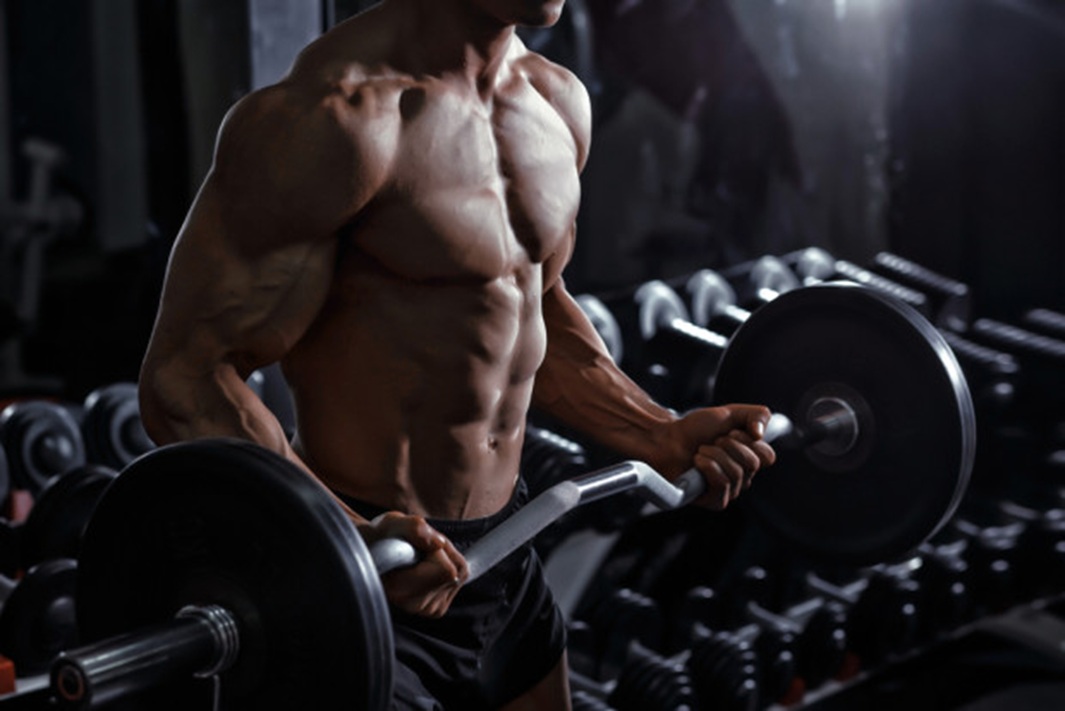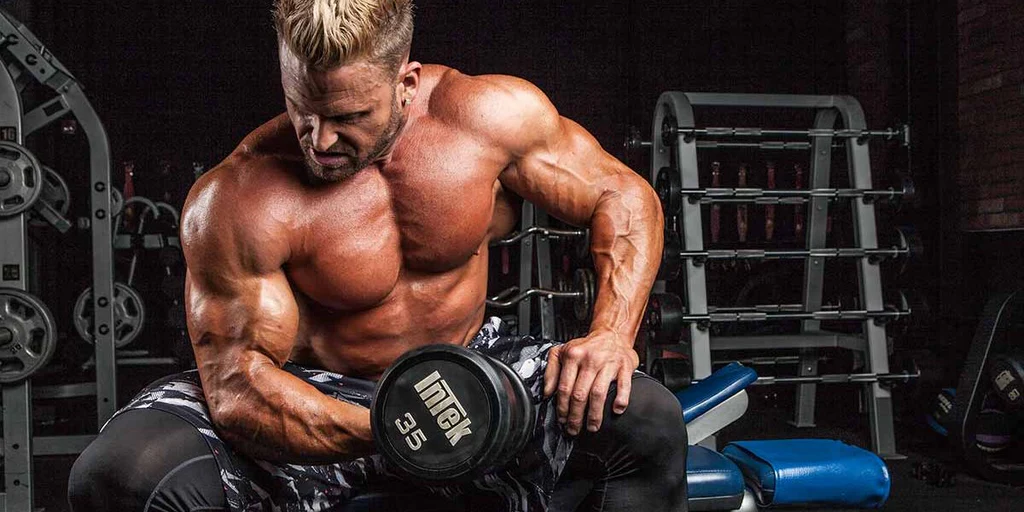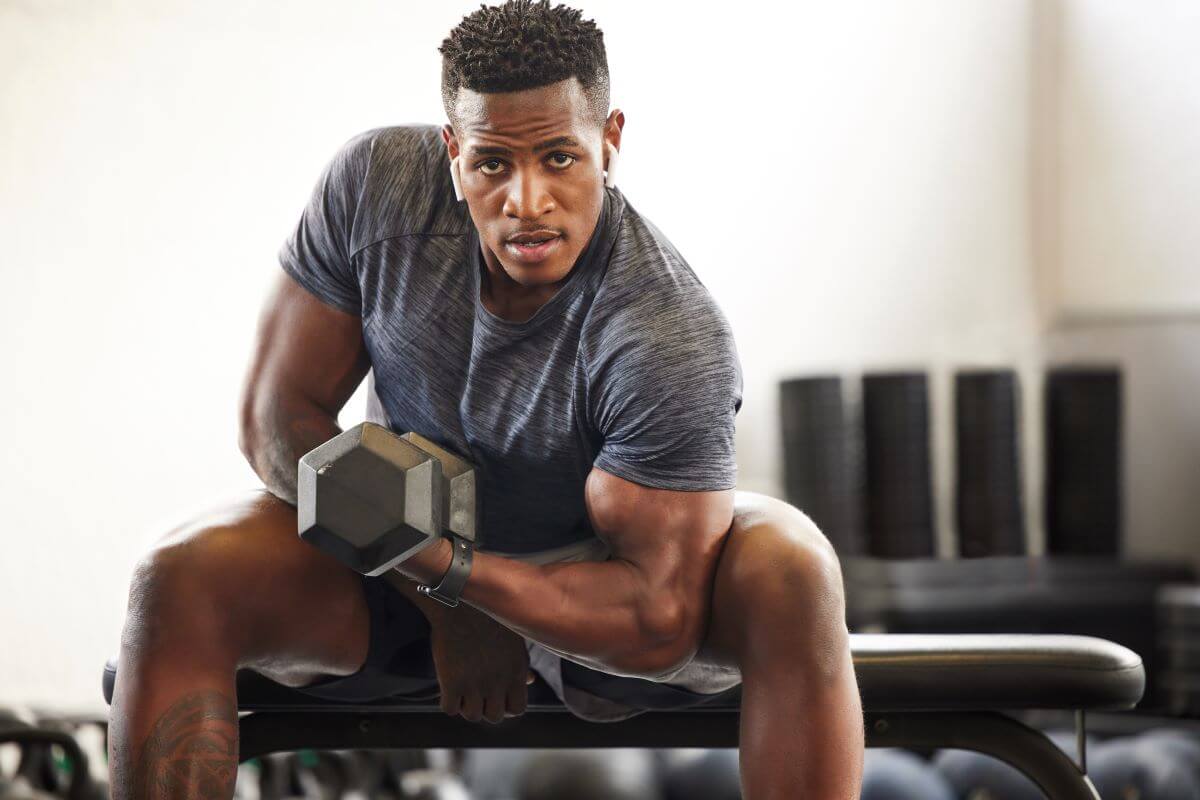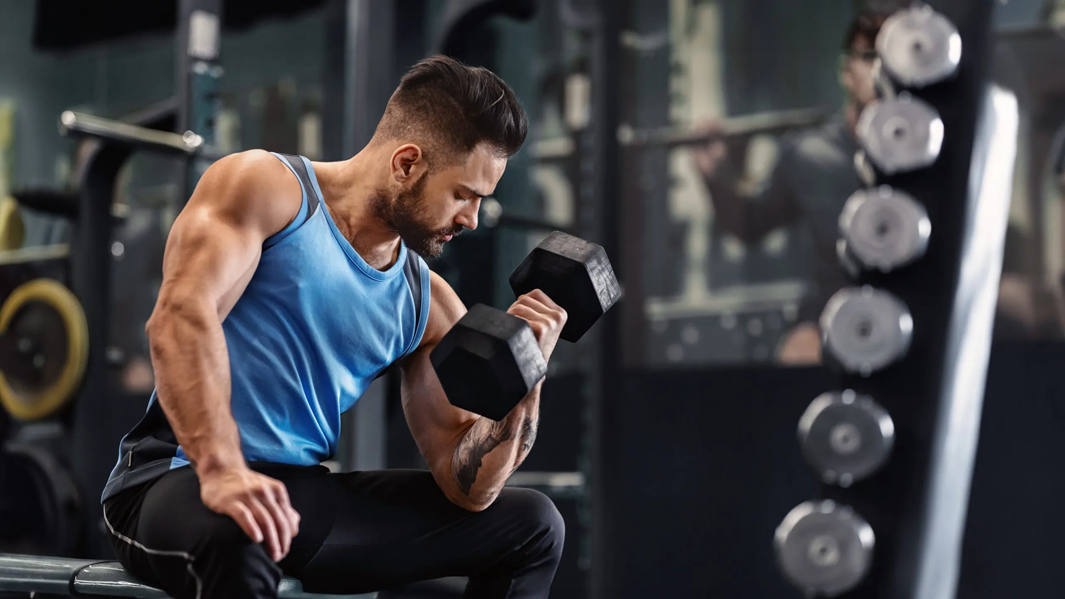Complete Arm Training Guide: Building Biceps, Triceps, and Forearms for Mass
In bodybuilding, no muscle group commands attention quite like the arms. Walk into any gym and you’ll see one universal obsession — bigger biceps and horseshoe triceps.
For good reason: well-developed arms are the most visible sign of upper-body strength and aesthetics. But getting there takes more than aimless curls and bro-science.
To build truly impressive arms, you need a focused strategy that targets all the key muscles — biceps, triceps, and forearms — with smart programming, proper volume, and the right movements.
Whether you’re a beginner chasing your first sleeve-stretching pump or an advanced lifter refining every detail, this guide is your blueprint for arm training success.
Arm Anatomy: Know What You’re Training
Before we dive into sets and reps, you need to understand what you’re actually building. Great arm development comes from balanced, complete training, not just blasting the same curl variation every week.
🔹 Biceps Brachii
- Long Head (outer): Responsible for the biceps peak.
- Short Head (inner): Adds width to the arm.
- Primary Functions: Elbow flexion, forearm supination.
🔹 Brachialis
- Lies beneath the biceps, giving your arms more thickness from the side.
- A strong elbow flexor, often undertrained but crucial for size.
🔹 Triceps Brachii
- Long Head: Crosses both the shoulder and elbow joint — requires overhead movements.
- Lateral and Medial Heads: Primary elbow extensors.
- Fun Fact: Triceps make up two-thirds of your upper arm mass — ignoring them is a major mistake.
🔹 Forearms
- Includes the brachioradialis, wrist flexors/extensors, and stabilizing muscles.
- Essential for grip strength, forearm density, and elbow health.
- Often neglected — but they’re the finishing touch on elite arm development.
Structuring Arm Training in Your Split
How you fit arm training into your weekly split will determine both your growth and recovery. Let’s break down the most effective options.
✅ Direct Arm Day
A dedicated “arms only” day allows you to target biceps, triceps, and forearms with high volume and precision. Ideal if:
- Arms are a weak point
- You’re an intermediate or advanced lifter
- You’re in an off-season growth phase
Example Weekly Placement:
- Monday: Chest
- Tuesday: Back
- Wednesday: Arms
- Friday: Legs
- Saturday: Shoulders
✅ Push/Pull Split
- Biceps on pull day (after back)
- Triceps on push day (after chest/shoulders)
- Forearms can be added to either day or placed on a separate rest day
This setup works well if you train 4–6 days a week and want to train arms frequently without a dedicated day.
✅ Upper/Lower Split
- Add short biceps/triceps finishers at the end of upper-body sessions
- Great for maintenance or combining hypertrophy with athletic training
This works for lifters training 3–4 days a week who want more full-body balance.
Weekly Volume Guidelines for Arm Growth
| Muscle | Sets/Week | Frequency |
| Biceps | 10–14 | 2–3x |
| Triceps | 10–14 | 2–3x |
| Forearms | 6–10 | 2–4x |
Note: You get indirect arm work during compound lifts (like pull-ups, bench press, rows), so don’t go overboard. Prioritize quality contractions, controlled tempo, and progressive overload.
Best Exercises for Building Arm Mass
🔹 Biceps
Barbell Curl
Great for overload and thickness
Keep form strict — no hip thrusts
Incline Dumbbell Curl
Trains the long head at a stretched position
Massive peak contraction
Preacher Curl (Machine or EZ-Bar)
Reduces momentum and isolates biceps
Focus on slow negatives
Cable Rope Curl
Constant tension, easy on joints
Great for pump work and finishers
Hammer Curl
Targets the brachialis and brachioradialis
Adds arm thickness from the side
🔹 Triceps
Skull Crushers (EZ Bar or Dumbbells)
Stretch and overload long head
Keep elbows stationary and avoid flaring
Overhead Extensions
Direct long-head triceps activation
Use cables, dumbbells, or a rope attachment
Close-Grip Bench Press
Heavy compound for strength and mass
Keep elbows tucked, focus on lockout
Dips (Bench or Weighted)
Targets all three heads
Lean forward slightly to emphasize triceps over chest
Rope Pushdowns
Great isolation movement
Finish with peak contraction and slow eccentric
🔹 Forearms
Reverse Curls (EZ-Bar or Barbell)
Hit the brachioradialis and wrist extensors
Use moderate weight and full ROM
Wrist Curls + Wrist Extensions
High-rep pump builders for detail
Superset both for time-efficient training
Farmer’s Carries
Builds grip, traps, and total arm strength
Walk heavy, walk far
Fat Grip Holds or Towel Hangs
Improve grip endurance and build forearm density
Great finisher or rest-day add-on
Sample Arm Training Sessions
💥 Full Arm Day (Mass + Detail)
- Incline Dumbbell Curl – 4 sets x 10–12
- Barbell Curl – 3 sets x 8
- Skull Crushers – 4 sets x 10
- Overhead Rope Extension – 3 sets x 12
- Wrist Curl + Reverse Curl Superset – 3 sets x 15–20
🧩 Push/Pull Split Example
Pull Day:
- Cable Curl – 3 x 15
- Hammer Curl – 3 x 12
Push Day:
- Close-Grip Bench Press – 3 x 10
- Rope Pushdown – 3 x 15
Forearms: Add reverse curls or carries after any session.
Training Tips for Maximum Arm Growth
- Train Through Full Range of Motion
- Stretch position (e.g. incline curl) + peak contraction (e.g. cable curl) = best hypertrophy combo
- Form First, Weight Second
- Momentum kills tension. If you’re swinging the bar, your biceps aren’t doing the work.
- Use Overhead Triceps Work
- Most people neglect the long head — but it’s the biggest of the three. Hit it hard.
- Vary Angles and Tools
- Dumbbells, cables, EZ-bars, and machines all hit muscles differently. Rotate them intelligently.
- Include Unilateral Training
- One-arm curls, triceps kickbacks, single-arm cable work help correct imbalances and add shape.
- Forearms Need Frequency
- Like calves, forearms respond best to high-frequency, moderate-load training. Think 3–4x/week for detail and strength.
Common Mistakes That Kill Arm Gains
- Only training arms once a week
Once isn’t enough for lagging arms. Hit them 2–3x weekly in some form. - Neglecting forearms
You can’t build full arms by skipping forearms. They complete the look. - Cheating on curls
Swinging weights might feel strong but robs tension from the biceps. - Over-relying on machines
Use a mix — cables and machines are great, but free weights teach control and stability. - Ignoring variety
Same 3 curl variations every week? Expect stalled growth. Use incline, preacher, concentration, cables, and different grip angles.
Practical Takeaways
- Train biceps and triceps 2–3x per week, forearms up to 4x
- Focus on both stretch and contraction-based exercises
- Use a variety of angles, tools, and rep ranges (6–20+)
- Don’t forget forearms — they’re part of the package
- Keep form tight and tempo controlled — squeeze every rep
- Progress volume or resistance weekly to stimulate growth
Final Word: Arms Built With Intent
Big arms don’t happen by accident — they’re the result of intentional programming, smart volume, and consistent execution. You need to treat arm training with the same focus as squats or deadlifts. That means targeting every head, using different tools, progressing weekly, and training with purpose.
If you’re willing to bring effort and discipline to your arm work — and train smarter, not just harder — you’ll see size, shape, and symmetry start to emerge.
Remember: bigger arms aren’t just about ego — they’re about completing the physique. So load the bar, lock in the tension, and curl with intent.
Your best arms are still ahead.
🔗 Related Articles:
- Best Biceps Exercises Ranked by EMG
- Best Triceps Builders for Mass + Lockout Strength
- Forearm Training That Actually Works
- Why Your Arms Aren’t Growing
- How to Program an Arm Day That Doesn’t Suck





